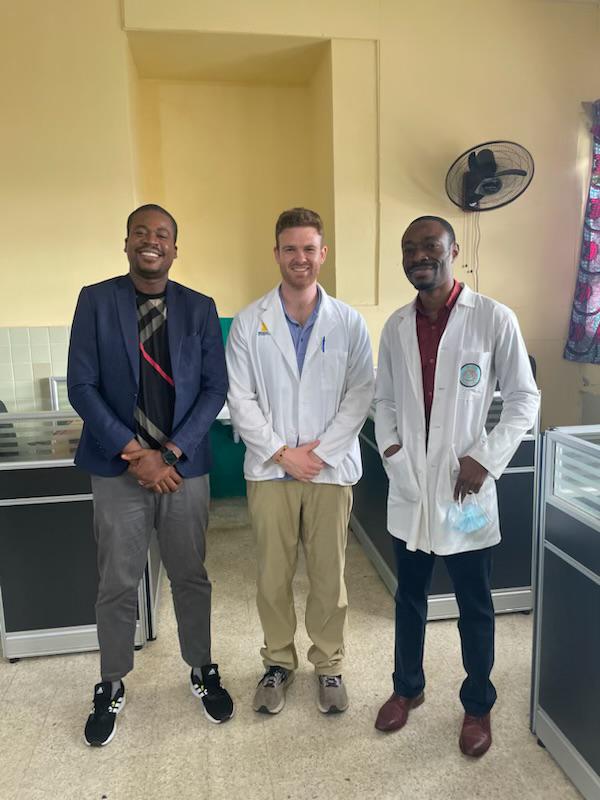
What are your motivations for the trip? How will your presence impact the local setting? Are the costs justified?
A new student-authored paper in Academic Medicine implores learners to ask themselves these and other questions before embarking to low-resource settings for international educational experiences. The paper, Ten Questions to Guide Learners Seeking Equitable Global Health Experiences Abroad, not only includes the titular prompts, but also lists of tips and pitfalls to avoid.
“The global health field is moving toward accountability. There is so much focus on decolonization, but there aren’t many resources for students,” said UMMS M4 Christopher Reynolds. “We wanted to create something specifically for them: how do you as a learner engage in a responsible way.”
Reynolds co-authored the paper with Joseph Kolars, Director of the U-M Center for Global Health Equity and the Global REACH office at UMMS, and Abebe Bekele, Dean of the School of Medicine at the University Global Health Equity, in Rwanda. Reynolds wanted to assemble questions to help guide students in their approach following his own global health experiences in Liberia, where he has visited for clinical rotations and maintained research partnerships since 2017.
“In my experience as a learner, you always feel a tension between wanting to have impact, while also having the humility to recognize that there’s so much you don’t know,” Reynolds said. “Our team was in a special position speak to these issues.”
Kolars and Bekele helped design and shape the list based on their ample experience mentoring and hosting traveling students.
“Dr. Bekele is in this doubly-unique position as a collaborator in his own research work and from his experience as a leader at the University of Global Health Equity, specifically by empowering the learners who this article is for,” Reynolds said. “As a longtime admirer of Dr. Bekele’s, it was an honor to collaborate with him.”
“Dean Kolars is a close mentor and guide for me of how to approach global work with humility, gratitude, and hospitality. I’ve learned so much from his example.”
Their final list includes ten questions—each accompanied by multiple sub-prompts—that target all stages of an international experience, from pre-departure through being in-country and post-trip reflection. See all 10 questions on the U-M Center for Global Health Equity blog.
The paper’s accessible, list-style format and accompanying checklists are intended for any health science student planning an international experience, whether they are bound for a destination that enjoys an extensive history of collaboration with the student’s home school, or a host institution with little-to-no prior relationship.
“At a place like U-M where we have a strong international partnership network, the foundation empowers students to engage the right way,” Reynolds said. “But every student should be held to a high standard. Everyone should recognize the responsibility that comes with these experiences and the potential consequences for their host institution.”
